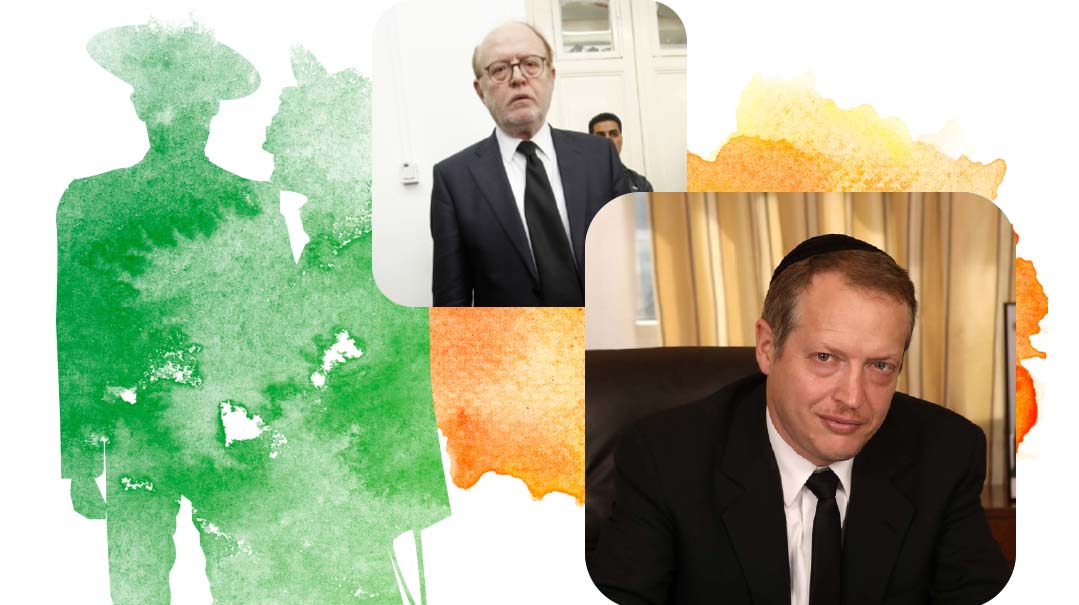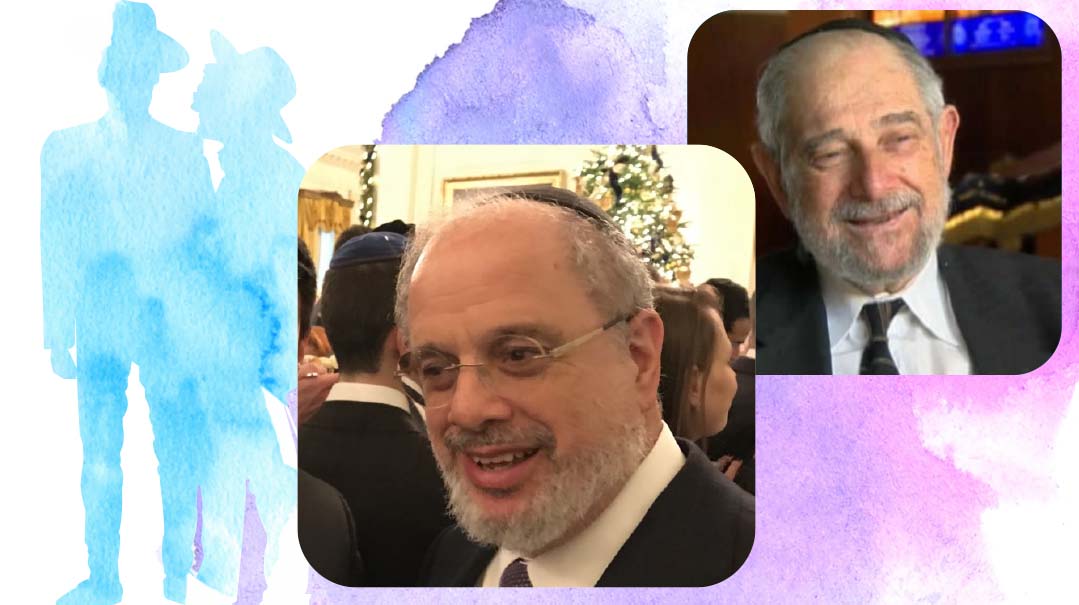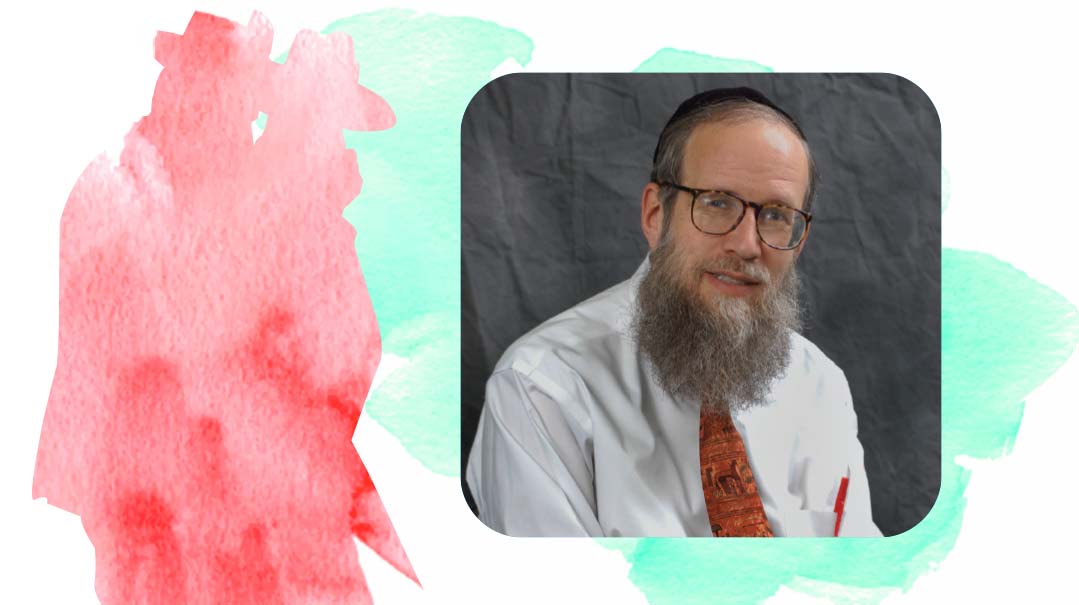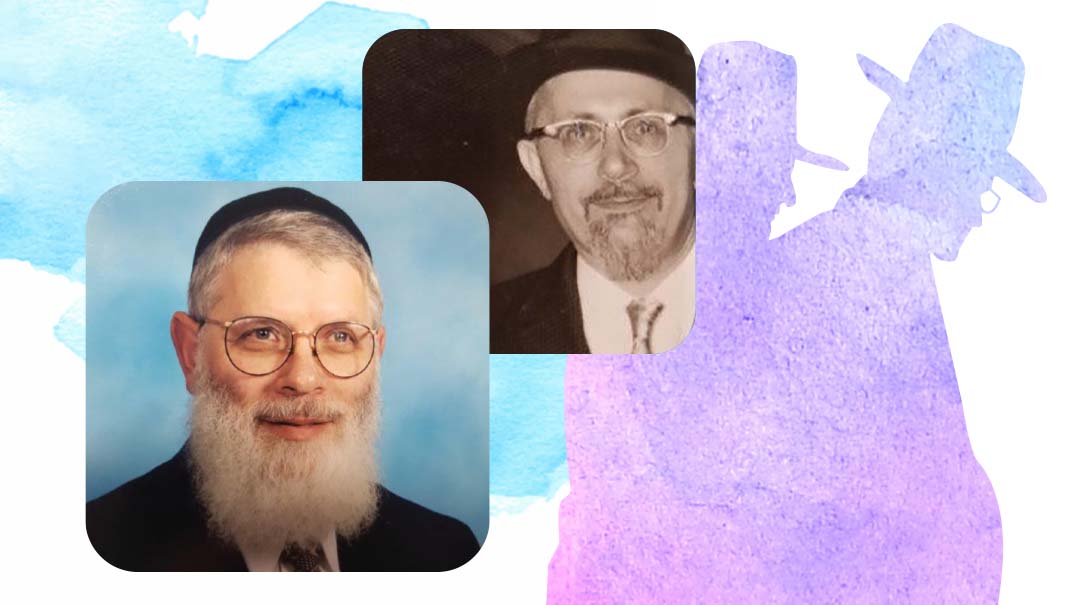Rabbi Shulem Landau
| September 14, 2021"I was always so impressed by my shver’s tremendous ahavas Yisrael — the time, money, and energy he gave to people"
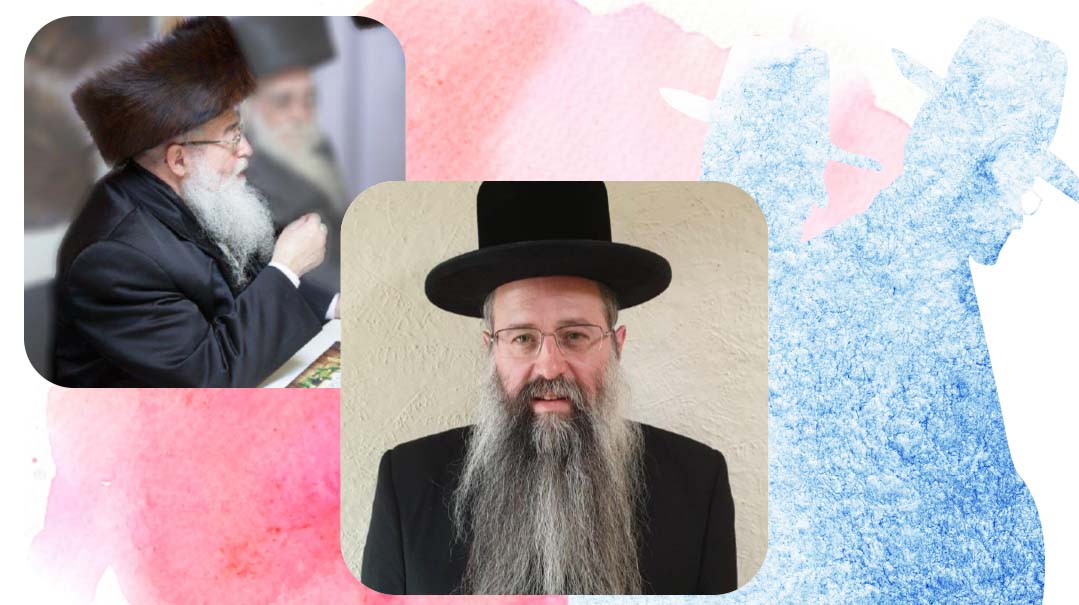
Took over: Badatz Igud Rabbonim (BIR) kosher certification in Manchester, England
Position: Rav hamachshir
Succeeded: Father-in-law, Dayan Osher Yaakov Westheim
Year: 2020
Before I took over
My father-in-law’s hechsher had a unique aim: to provide mehadrin foods for bnei Torah so their families could have all products, including candies, at a high kashrus standard without high pricing. I did shimush under my father-in-law and went to check companies, productions, and wineries for him. During the eight-year period that my father-in-law’s hechsher supervised their own shechitah, I was the rav hamachshir. When we closed that shechitah, I was asked to do shechitah for other hechsherim in the United Kingdom. A year or two before his petirah last April, my father-in-law had pneumonia, and he told those close to him that he wanted me to take over BIR so what he had built up over decades would continue for the benefit of the tzibbur bnei Torah and not go down the drain.
The biggest challenge I faced right away
COVID. My shver passed away from COVID in April 2020. In March, when it was already clear that borders were closing, he held meetings and made it clear that he wasn’t satisfied with relying on Zoom for supervision. This made things very challenging from the start — and that was before we knew how long borders would be shut. We needed to find mashgichim who could travel from A to B, get them the right permits, and send them to factories. The Israeli factories were easiest, and we sent US-based mashgichim to Mexico, but it was challenging to find people with permission to travel to the Far East and elsewhere, and travel to and from the UK was restricted. On one occasion, I had a permit and a special invitation from a company in Spain, but I was sent back as I don’t have Spanish citizenship or a passport. Baruch Hashem, we managed, and things are much easier now, although not completely free of red tape because travel isn’t yet back to normal.
My first big decision
I try to visit all the factories that manufacture for our hechsher myself. At one of them, I saw that over time, things had changed slightly, so I met with the owners and told them a few things in the koshering process needed to be modified to meet our stringent standards. They were worried about the heat damaging the machinery and immediately said they couldn’t do it. I told them this was non-negotiable at our end and had the mashgiach show them a video of how we did this in other factories and had no problems, and we left it at that. I knew they could work with other hechsherim if they so desired with the way they were kashering at present, but as it didn’t meet our mehadrin standards, we were not prepared to leave it as it was. The buyer, of course, was disappointed. Baruch Hashem, three months later, the factory decided to upgrade the process and stay with us.
What I wish I’d known from the start
Taking this on was a major decision for me. I stepped into very big shoes; my father-in-law was a rav and world-renowned talmid chacham. I didn’t know, though, how much the companies we deal with not only respected him — they also respected the concept of kashrus. I thought I would deal with a lot of resistance to any changes I would make, but I see that by and large the companies try to do the right thing and are very respectful and forthcoming. Baruch Hashem, this aspect is easier than I thought.
When I miss my father-in-law most
I turned to my shver, like thousands of people, with sh’eilos in all areas of my life. As for kashrus, I was used to automatically calling him with any issue, because he had the ultimate responsibility. Now, when I have questions about potential kashrus issues in factories, I reach out to other baalei machshir I respect. Fortunately, Dayan Westheim was extremely clear — he had dictated kashrus protocols for each factory and left clear instructions on how to kasher each one. Within those instructions, we can find a lot of answers to new issues which arise. We’re also blessed with a team of experienced staff with years of experience, most notably our Kashrus Director, Rabbi Danny Moore, who has years of experience in his own right, plus 17 years of working with my shver, as well as many other mashgichim who worked for my shver for many years. In fact, a certain community was unsure whether to continue using our hechsher after my shver’s passing. I explained to the rav that we were continuing on the mehadrin path, and that I was personally visiting all our factories. I don’t have my father-in-law’s vast knowledge and expertise, but I have his instructions, his shimush, his staff — and I do have more time than he did to make visits and supervise operations. This was well-received, and the community continued accepting our hechsher.
Something my father-in-law did that inspires me
He was a trailblazer who thought out of the box for solutions. He was the first one to provide for celiac sufferers by producing oat matzahs — the Minchas Yitzchak has a teshuvah written to my shver answering his query on how this should be done. He was the first, I believe, to supervise production of kosher fish gelatin, an ingredient in all gummy jellies, and the first to have the correct brachah printed on products.
Something my father-in-law did that I could never do
Even though he heard a lot of difficult news from the people he counseled, he was able to move on to the next thing, to accomplish, learn, give shiurim, and direct kashrus operations. I asked him how he could put all these tzaros aside, and he told me that his rebbe, the Biale Rebbe, gave him a segulah that helped him put everything in its own compartment so he could remain serene. It’s a special koach vital for any rav.
Something I do today that my father-in-law wouldn’t have done
My shver was a tremendous talmid chacham with very broad shoulders. I don’t have those broad shoulders, and therefore, in certain situations, I’m more machmir. It’s not a bad thing for consumers — I just don’t always have the knowledge to find a heter, a permissible solution, so sometimes I require factories to undergo a more stringent kashering process.
How I’m similar to my father-in-law
I have a technical way of thinking, as my shver did, and I like to know everything in and around the manufacturing process and to analyze it.
And how I’m different
I’m not the same caliber of talmid chacham — he was much more than me. He was in kashrus for 45 years, while I’m in the field for 20. I hope there will be less of a gap as the years go on and I acquire bezras Hashem more Torah knowledge, practical knowledge, and expertise.
If I could ask my father-in-law one question
“How did you have time and energy for it all?” I was always so impressed by my shver’s tremendous ahavas Yisrael — the time, money, and energy he gave to people who came to him with their family and health troubles. He accepted people, he listened to them with complete focus, and he never looked down on them. My shver used to be up learning at 3 a.m. — “If I don’t learn at night, when will I learn?”— because his day was spent counseling people and answering sh’eilos. He would learn through the night before he traveled by plane, because trips and flights didn’t lend themselves to learning.
(Originally featured in Mishpacha, Issue 878)
Oops! We could not locate your form.

